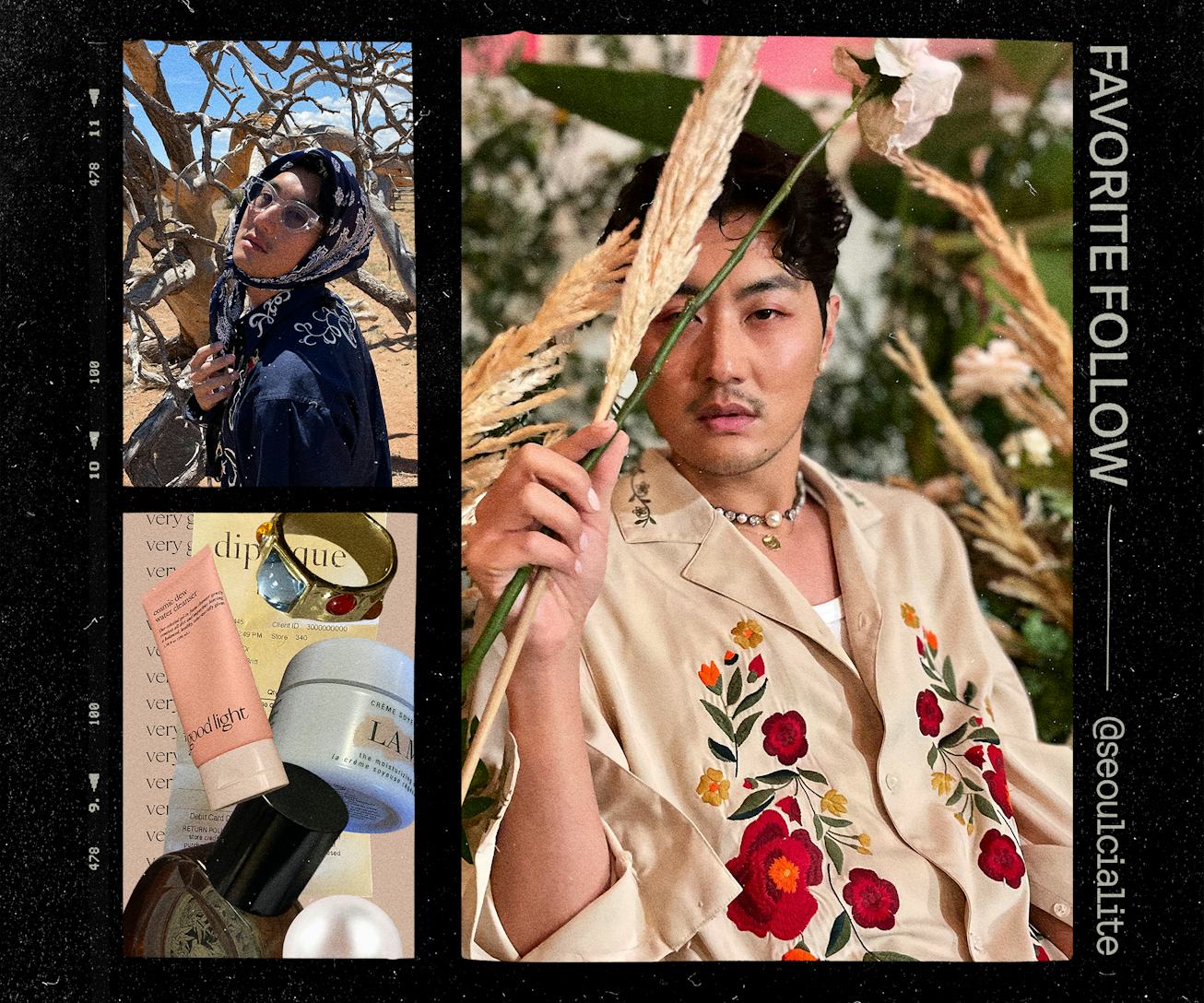
Beauty
Very Good Light’s David Yi On Creating Space For Gender-Inclusive Beauty
The brand co-founder and author of Pretty Boys shares his thoughts on beauty beyond the binary.
Welcome to Favorite Follow, a series highlighting NYLON's favorite creators and the stories behind some of their most memorable content.
Before male celebrity beauty brands began trending and the likes of Harry Styles and MGK started getting attention for their manicures, there were people like David Yi pushing for a more thoughtful and inclusive beauty industry. Yi is the co-founder and CEO of Very Good Light, a beauty media platform dedicated to redefining masculinity, the status quo, and promoting people from all backgrounds and the gender-inclusive personal care brand, Good Light Cosmetics.
Both Yi’s brand and platform were born out of their pride in their Korean American heritage. “It's authentic to my own story of empowerment and self-realization and love,” he told NYLON. “It's also authentic to Good Light's story—we're manufactured in South Korea, the beauty capital of the world.” They hope people come to Good Light for “stories of how beauty comes in so many different shapes and forms,” and are passionate about having conversations about expanding beauty beyond the binary even further outside of the site. Last year, Yi published a book called, Pretty Boys: Legendary Icons Who Redefined Beauty (and How to Glow Up, Too), exploring diverse and surprising beauty icons who have redefined what masculinity and gender expression look like throughout history. When Yi’s not writing about how self-care and wellness transcend boundaries and binaries, you’ll find him breaking it down on TikTok.
Read on, for Yi’s thoughts on the history of masc-identifying folk in makeup, male celebrity beauty brands, and why beauty is inherently rebellious.
ON STARTING VERY GOOD LIGHT
“It was after working as a fashion and beauty editor that I realized the world was still so binary. Beauty was so gendered—much more than now if you can believe. I thought it was a little off-putting to put labels on products. Why is it that only one gender was allowed to beautify? Why is it that only one gender could have the permission to empower themselves with color cosmetics? Why is it that taking care of yourself was considered less than if you weren't female?
As a Korean American who was pushed and pulled in two different directions, it was quite jarring. In Eastern cultures, skincare and beautifying are an act of respect. In the Western world, it's almost as if participating in skincare and beauty makes you less than and that's something that always confused me. Very Good Light launched in 2016 to redefine masculinity through beauty. Beauty is a vehicle that's always been political and a symbol of change. Since, we've led that charge of democratizing expression, identity, and beauty.”
ON THE HISTORY OF MASC-IDENTIFYING FOLK IN MAKEUP
“Some of my favorite stories come from ancient history and how men and masc-identifying folx truly empowered themselves with beauty. I write about this in my book, Pretty Boys. Some examples include the Babylonians who used to paint their nails to match their hair color before battle. This was in tens of thousands of years ago but before their potential last day on Earth, they wanted to feel and look good before a big fight.
I loved stories of the Vikings and how these very powerful and brawny men were so obsessed with grooming they had grooming kits next to their swords and shields. These consisted of eye tweezers, combs, picks, and more to ensure they were looking their best at every turn. I loved stories of the Korean hwarang from the 600s. They'd beautify to mimic Maitreya, the most beautiful of Buddhist gods, and channel a higher power.”
ON THE RISE OF MALE CELEBRITY BEAUTY BRANDS
“I think it's bold and beautiful and if it empowers them and inspires others, it's great! But I do think there needs to be consciousness of their privilege, and also homage paid to the many women and LGBTQIA+ community members who fought to be seen before them. After all, it's women and LGBTQIA+ members who've always fought for equality, agency, and the right to express themselves freely. For instance, many trends come from the drag community where folx were severely punished for accessorizing themselves. It's important that we do not diminish or dismiss histor. Cis, straight, or straight-passing, white men especially need to understand this and give back.”
ON THE REBELLION OF BEAUTY
“Beauty has always been a sense of stepping into your own light and owning your agency. Thinking about yourself in such a bold way is rebellious. We've all been taught to fit into the status quo or conform to society and thinking about your beauty and how you're unique is the antithesis of that. Beauty's inherent rebelliousness, then, means that you are coming into your own and betting on yourself. Radically loving yourself in entirety? Putting yourself first and believing in your power? I think that that's an act of rebellion.”
ON THE FUTURE OF THE BEAUTY INDUSTRY
“I believe we need to expand upon what masculinity and femininity mean. Though we will not be able to abolish these terms in our culture, I do think we can be more exact with our words in what that means. What are we saying when we refer to a man as masculine or feminine? Are we saying that they have more agency to their bodies? Are we pinpointing that they are bolder in expression?
At the core of it, there's misogyny in these words—with feminine usually meaning less than or incapable. I think we have the power in beauty to turn it upside down. We can understand the fluidity of humanity and how we just all want to be seen, heard, and share power.”
Follow David Yi on Instagram.
This article was originally published on